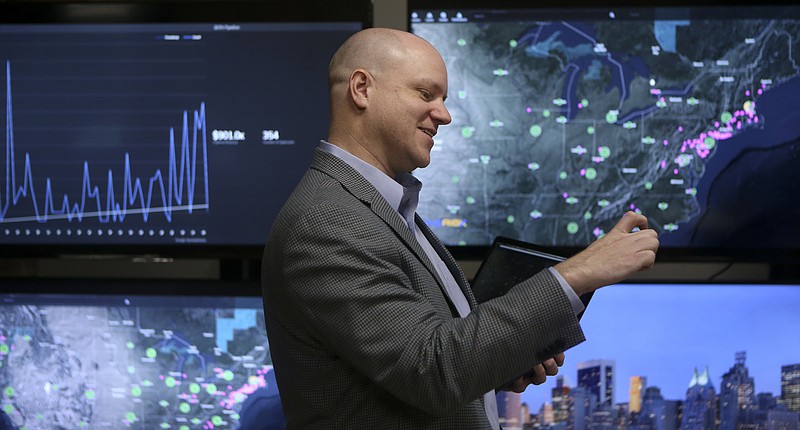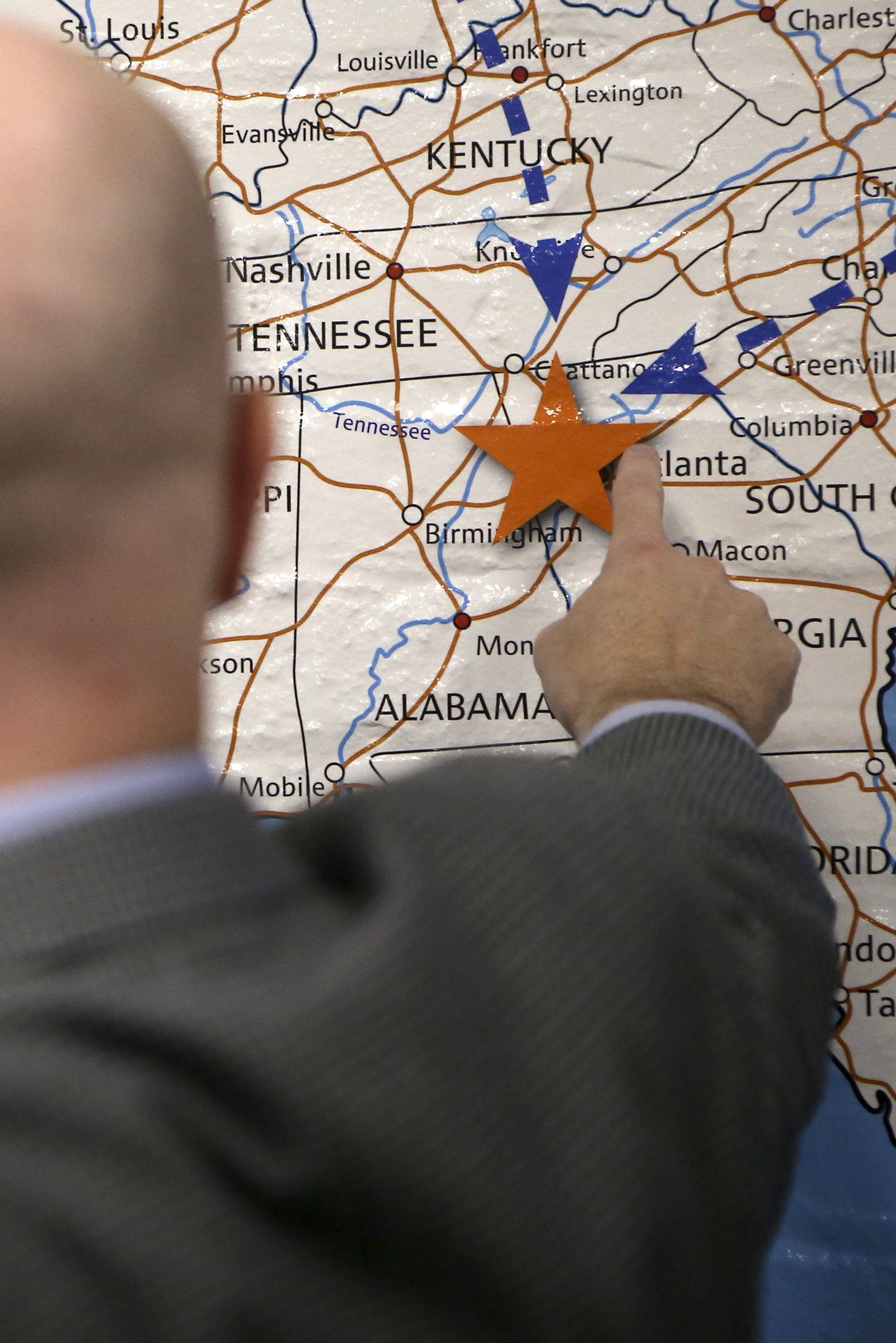Saluting Chattanooga's MVPs
Chattanooga's downtown skyline took on a new look in 2017 with the tallest new building erected in decades added in the central city and several signature structures taking on new owners and uses.But far more than just the built environment was altered during the past year as a growing and shifting economy and workforce continued to change the way business is done in Chattanooga.The individuals who helped lead such changes and did the most to reshape the regional economy are our Most Valuable Players in business in 2017. The top 10 list includes those leading everything from volunteer programs to Chattanooga's biggest business and reflects the diversity of our changing economy.
Craig Fuller aims to do something that no one else has ever done: Turn the cost of goods shipped by truck into a commodity - like oil, coal and electricity - that can be traded on futures markets.
That's why Fuller, whose family owns the U.S.'s largest privately held trucking company, Chattanooga-based U.S. Xpress, has launched his own venture capital-funded startup company, TransRisk.
TransRisk's goals are two-fold: It will create trucking futures contracts (and get a half a percent when the futures are traded, which will be its largest income source.)
As part of that, TransRisk boiled down the roughly 18,000 "lanes," or routes between cities that truckers drive, to lanes between six major cities that handle about a quarter of U.S. trucking traffic: Chicago, Atlanta, Philadelphia, Dallas, Los Angeles and Seattle. Investors can buy futures to speculate on the price of shipping between the six cities.
A large shipper of goods, such as Amazon, could "go long," or bet that the notoriously volatile price of shipping by truck would go up, and make a profit on that investment - while in the real world the giant online retailer pays more to have freight trucked.
A big trucking company, such as J.B. Hunt, could "go short" and bet that the price of trucking will go down - so it makes money on that investment while getting hurt by a real-world downturn in the rate per mile.
It's all about hedging, Fuller said recently as he discussed his one-year-old, 19-employee startup business that's headquartered in a refurbished, old brick building at 1500 Chestnut Street near Finley Stadium in Chattanooga's up-and-coming Southside neighborhood.
"You take the opposite [position] of where you're exposed," he says.
TranRisk's other goal is to educate investors, who mainly will be large companies who would buy trucking futures to hedge their bets. The startup launched a free website called FreightWaves.com that's chock full of news about the trucking industry written by a team of TransRisk writers.
TransRisk also plans to launch Sonar, a subscription-only service that provides in-depth data about the trucking industry for $300 per person per month. Fuller's startup taps about 150 sources of raw data to track the trucking industry and try to give investors a sense of where rates are headed and their volatility (which is a good thing for TransRisk).
"If trucking rates were not volatile, you couldn't trade it," says David Sheppard, TransRisk's chief strategy officer.
Fuller's wife, Brooke, works as director of administration and human resources at a desk inside the front door that's home to the couple's mini goldendoodle, a cross between a poodle and a golden retriever.

